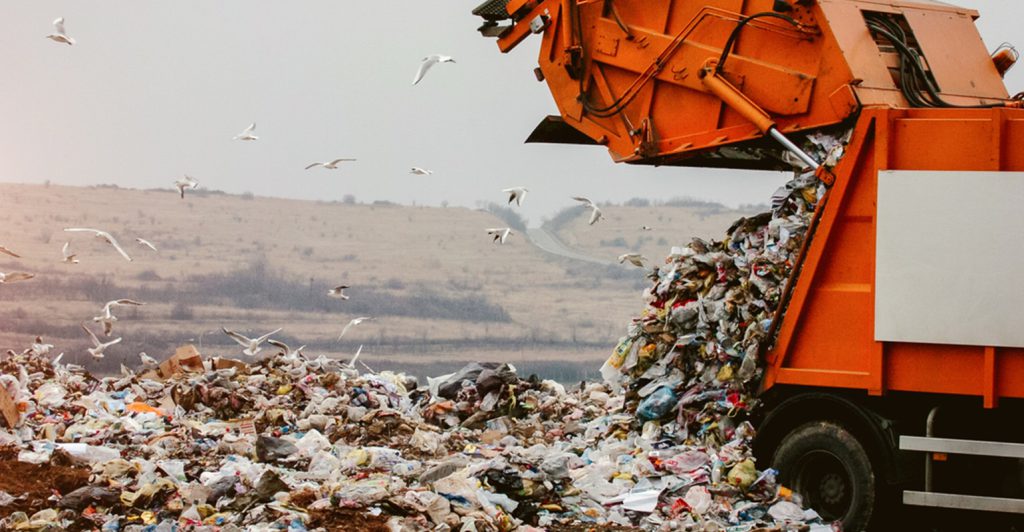✓ Servicing Pittsburgh, PA and the region
✓ Get a quote now, call (412) 284-0474
✓ Customer friendly experienced staff
✓ Fastest service in western Pennsylvania
✓ Join hundreds of satisfied customers
Landfills are critical components of modern waste management practices. We serve as the ultimate disposal site for waste that cannot be recycled or otherwise recovered. Landfills provide a way to isolate and contain waste materials to prevent them from harming the environment or public health. Pennsylvania is home to several landfills that operate under strict regulations and guidelines.
Pennsylvania has a long history of landfill development and operations. There are currently 44 active landfills in the state, along with additional inactive and closed landfills. These landfills vary in size, from small operations that serve local communities to large facilities that accept waste from multiple states. Some of the largest landfills in Pennsylvania include the Keystone Sanitary Landfill, the Tullytown Landfill, and the Greentree Landfill.

Landfill Regulations in Pennsylvania
The operation of landfills in Pennsylvania is governed by the Pennsylvania Department of Environmental Protection (DEP). The DEP sets strict regulations and guidelines for landfill construction, operation, and closure to ensure that landfills do not pose a threat to public health or the environment. These regulations cover a range of issues, including waste disposal, site selection, groundwater protection, and air emissions.
One of the most significant regulations is the Pennsylvania Municipal Waste Planning, Recycling, and Waste Reduction Act, which requires municipalities to develop and implement comprehensive waste management plans. These plans must include strategies for reducing waste generation, recycling, and landfilling. The DEP also requires landfills to submit detailed plans for landfill design, construction, operation, and closure.
Environmental Impact of Landfills
Landfills have the potential to negatively impact the environment in several ways. One of the most significant concerns is groundwater contamination. Landfills generate a large amount of leachate, which is a liquid that forms as rainwater filters through the waste. Leachate can contain a variety of harmful pollutants, including heavy metals, organic compounds, and pathogens. If not properly contained, leachate can seep into groundwater and contaminate nearby drinking water sources.
Air pollution is another significant concern associated with landfills. Landfills generate methane, a potent greenhouse gas that contributes to climate change. Methane is also a health hazard, as it can displace oxygen in confined spaces and pose a fire and explosion risk. Landfills also emit volatile organic compounds (VOCs), which can contribute to the formation of ground-level ozone and smog.
In addition to groundwater and air pollution, landfills can also impact local ecosystems. Landfills can disrupt wildlife habitats, alter soil composition, and contaminate surface water sources. Landfills can also generate unpleasant odours, attract pests, and create aesthetic blight in the surrounding areas.
Community Concerns
Landfills are often a source of concern for local communities. Communities near landfills may experience increased traffic, noise, and odour. Landfills can also reduce property values and negatively impact the local economy. Additionally, there is a perception that landfills may pose a risk to public health, which can cause anxiety and stress among community members.
One of the most significant concerns among community members is the potential for exposure to hazardous waste. While landfills are designed to contain waste materials, there is always a risk of a breach or failure. If hazardous waste were to escape from a landfill, it could pose a significant threat to public health and the environment.
Landfills are a critical component of modern waste management practices, but they also pose significant environmental and public health risks. Pennsylvania has a long history of landfill development and operation, and there are currently 44 active landfills in the state. These landfills are governed by strict regulations and guidelines set by the DEP, which cover a range of issues, including waste disposal, site selection, groundwater protection, and air emissions. Despite these regulations, landfills can negatively impact the environment through groundwater contamination, air pollution, and disruption of local ecosystems. Local communities are often concerned about the potential risks associated with landfills, including exposure to hazardous waste.
To address these concerns, it is important for landfill operators and regulators to continue to improve landfill design and operation to minimise the environmental and public health risks. This can include implementing better leachate and gas collection systems, improving waste management practices to reduce the amount of waste sent to landfills, and exploring alternative waste management strategies, such as recycling and composting.
Specific landfills in Pennsylvania
Tullytown Landfill: Located in Bucks County, Tullytown Landfill is one of the largest landfills in Pennsylvania. It accepts both municipal and industrial waste.
Greentree Landfill: Located in Washington County, Greentree Landfill is owned and operated by Waste Management Inc. and is one of the largest landfills in the state.
Alliance Landfill: Located in Lackawanna County, Alliance Landfill is owned and operated by Waste Management Inc. and is one of the few landfills in the state that is permitted to accept out-of-state waste.
Lanchester Landfill: Located in Chester County, Lanchester Landfill is owned and operated by Republic Services and is permitted to accept both municipal and industrial waste.
Pine Grove Landfill: Located in Indiana County, Pine Grove Landfill is owned and operated by Advanced Disposal Services and is permitted to accept both municipal and industrial waste.
Landfills play a critical role in managing waste in Pittsburgh, and the services offered by Pittsburgh Dumpster Rentals HQ are integral to this process. As our city continues to grow and evolve, the responsible disposal of waste becomes increasingly important for environmental sustainability and public health.
✓ Servicing Pittsburgh, PA and the region
✓ Get a quote now, call (412) 284-0474
✓ Customer friendly experienced staff
✓ Fastest service in western Pennsylvania
✓ Join hundreds of satisfied customers
